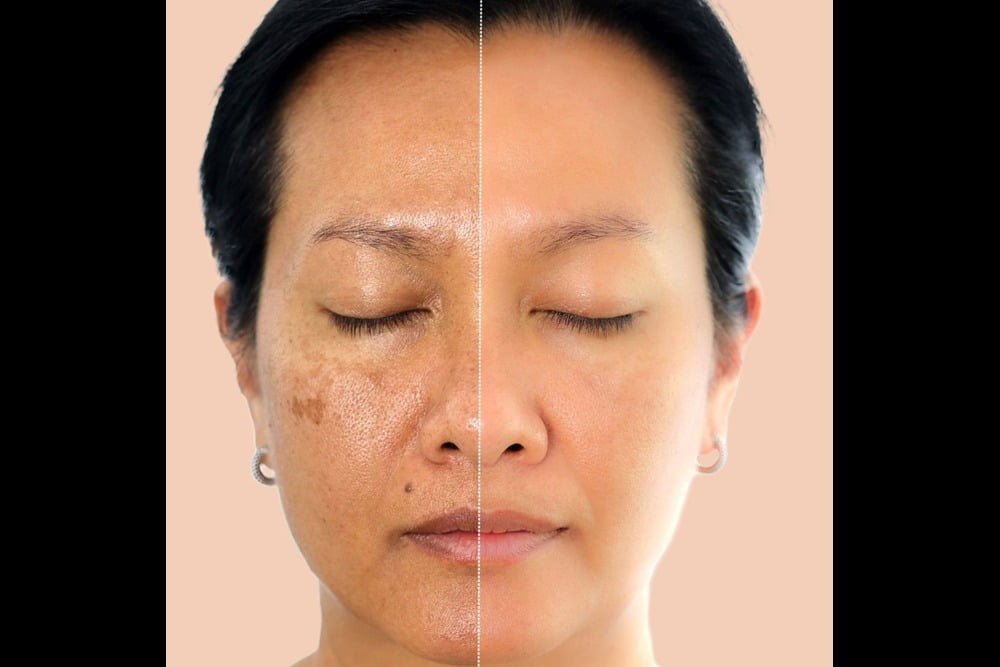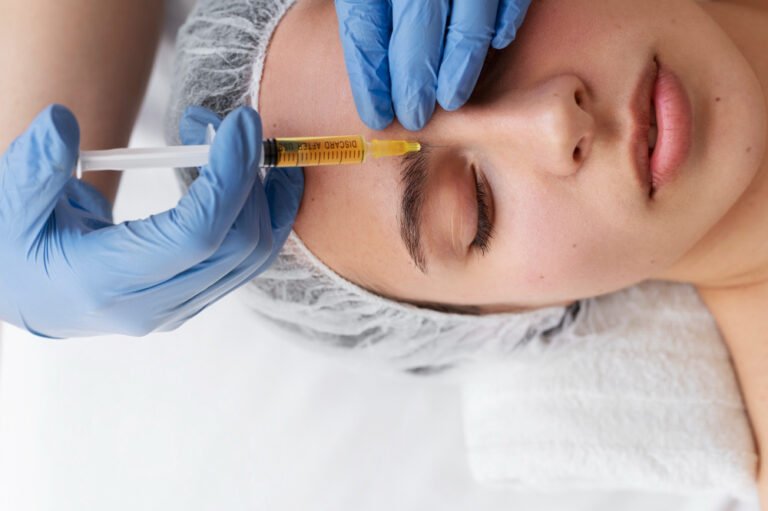As the seasons change, so does your skin. You might have noticed that your skin behaves differently in winter, summer, and even during the transition periods of spring and autumn. This isn’t just your imagination—seasonal changes can significantly impact your skin’s health and appearance. At HOA, we believe that understanding these changes is key to maintaining healthy, glowing skin year-round. Let’s explore how each season affects your skin and what you can do to keep it in top condition.
Winter Woes: Dryness and Dehydration
Winter is tough on your skin. Cold air, low humidity, and indoor heating can strip your skin of its natural oils, leading to dryness, flakiness, and irritation. Your skin might feel tight or look dull, and those with sensitive skin may experience redness and itching.
3. Melasma:
Often called the “pregnancy mask,” melasma is characterized by dark patches that usually appear on the face. It is commonly triggered by hormonal changes during pregnancy or due to birth control pills.
4. Skin Injuries:
Any injury to the skin, whether from cuts, burns, or irritation, can lead to dark spots as the skin heals.
5. Medications and Metabolic Issues:
Certain oral medications can cause hyperpigmentation as a side effect. Additionally, metabolic issues like insulin resistance or conditions such as diabetes can trigger pigmentation changes in the skin.
Dr. Neha emphasizes the importance of identifying the cause of hyperpigmentation to tailor the treatment. “Treating hyperpigmentation is not one-size-fits-all. Knowing what’s behind your pigmentation is key to creating an effective plan.”
How to Treat Hyperpigmentation
When it comes to treatment, Dr. Neha khuraana at House of Aesthetics offers several highly effective options for addressing hyperpigmentation. These treatments focus on reducing the appearance of dark spots and promoting even-toned skin.
1. Chemical Peels:
Chemical peels exfoliate the outer layer of dead skin cells, revealing brighter, clearer skin underneath. They are particularly effective for treating superficial pigmentation issues. Dr. Neha often recommends chemical peels for those dealing with mild sun damage or post-inflammatory hyperpigmentation.
2. Laser Treatments:
Laser therapy targets deeper layers of the skin to break down excess pigment. This method is highly effective for treating stubborn hyperpigmentation that doesn’t respond well to topical treatments.
3. Topical Treatments:
Dr. Neha explains that using the right skincare products is vital for managing hyperpigmentation. Ingredients like vitamin C, niacinamide, retinoids, and kojic acid are known to help fade dark spots over time by inhibiting melanin production and promoting cell turnover.
4. Microneedling with PRP:
Microneedling, combined with Growth Factor Therapy, can also help reduce the appearance of pigmentation by stimulating collagen production and encouraging the skin to heal naturally.
Dr. Neha khuraana’s Expert Tips for Managing Hyperpigmentation
Dr. Neha emphasizes that while hyperpigmentation can be treated, prevention is just as important. Here are her top recommendations for managing and preventing further pigmentation:
- Use Sunscreen Daily:
“UV exposure is the number one trigger for hyperpigmentation, so using a broad-spectrum sunscreen daily, even when indoors, is critical,” says Dr. Neha. - Be Gentle with Your Skin:
Avoid picking at acne or skin irritations, as this can lead to post-inflammatory hyperpigmentation. Dr. Neha also suggests using gentle skincare products to avoid irritating the skin further. - Consider Professional Treatments:
While over-the-counter products can help fade dark spots over time, professional treatments often deliver faster and more effective results. “Consulting with a dermatologist allows us to create a customized plan for your specific skin needs,” Dr. Neha advises.

Achieve Even-Toned Skin at House of Aesthetics
If hyperpigmentation is affecting your confidence, there are solutions. At House of Aesthetics, Dr. Neha khuraana offers personalized treatment plans to help reduce dark spots and reveal a more radiant, even complexion. Whether you’re dealing with sun damage, acne scars, or hormonal pigmentation, Dr. Neha and her team are here to help.
Ready to take the next step toward brighter, more even-toned skin? Book a consultation with Dr. Neha khuraana today and discover the best treatment options for your skin.





